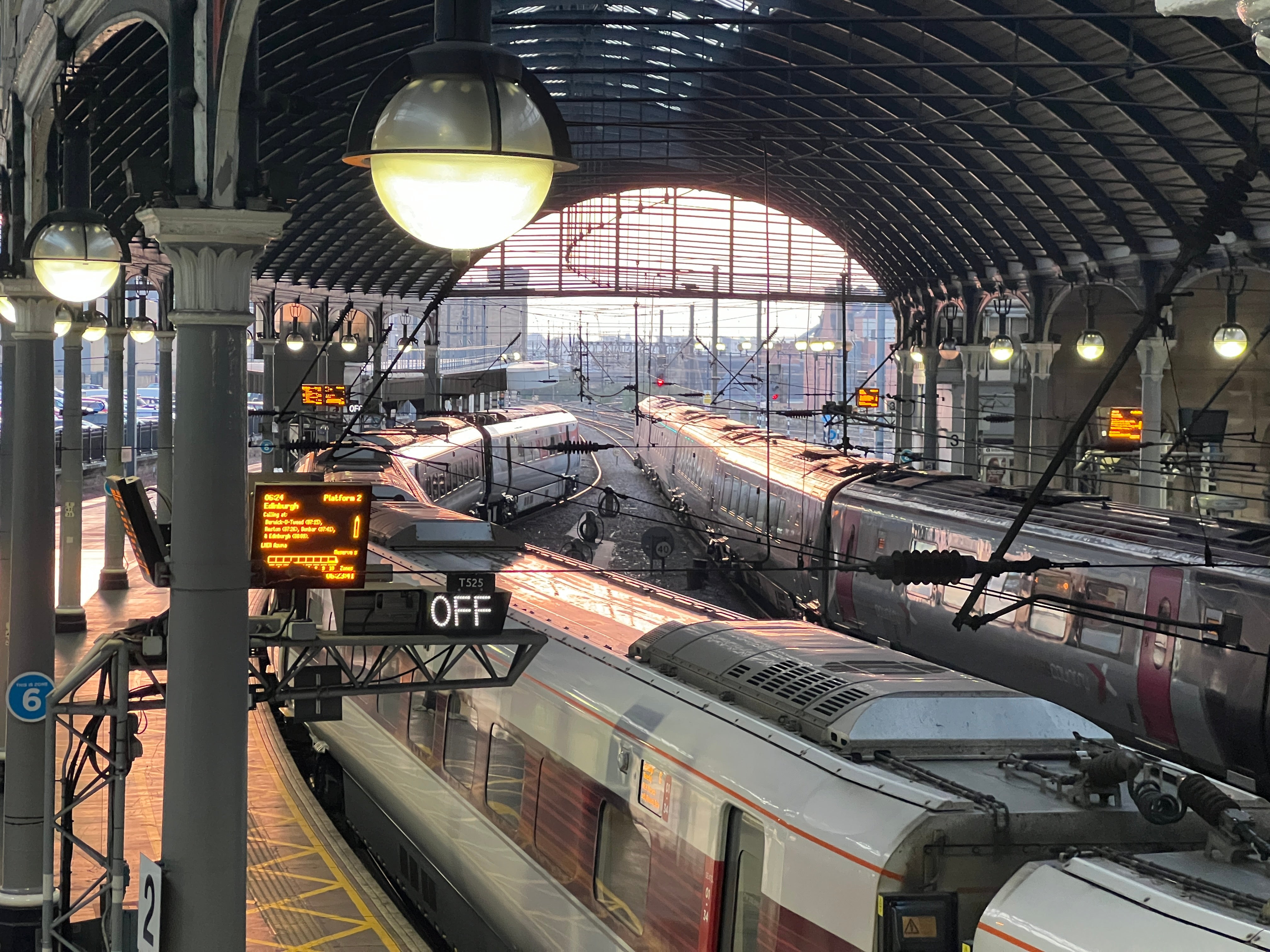If the rail industry carries on like this, it will end up in oblivion
The Man Who Pays His Way: With a prime minister who has literally no time for trains, the £4,000-per-minute subsidy looks at risk

Simon Calder, also known as The Man Who Pays His Way, has been writing about travel for The Independent since 1994. In his weekly opinion column, he explores a key travel issue – and what it means for you.
What exactly, the long-suffering taxpayer is entitled to ask, is the nation getting from the £4,000 per minute currently being poured into the railway – on top of the usual subsidies?
I would love to respond that trains are improving all the time. With fast, frequent and comfortable services, plus a simple fare structure, they offer a reliable, good-value alternative to road travel.
But after meandering around the network this week, from Yorkshire to Sussex, I regrettably conclude that the nation’s railway faces an existential crisis.
Tens of thousands of dedicated women and men do their best to deliver a decent service for travellers. But that is simply not enough.
Regular national rail strikes began 15 months ago. The industrial action by members of the RMT and Aslef unions, in furtherance of a dispute on pay and working arrangements, has hit millions of travellers by train.
Car manufacturers, petrol retailers, coach companies and airlines celebrate every new strike call, while anyone with an important journey more than two weeks ahead cannot plan to travel by train with any certainty.
Trains are becoming irrelevant for the vast majority of the UK population – who might have considered using them once but are understandably unimpressed with the uncertain prospects of reaching their destination as well as the world’s most baffling array of fares.
Meanwhile, the prime minister literally has no time for trains. Rishi Sunak chooses a helicopter over perfectly plausible rail journeys such as London to Southampton. His wider disdain for the train was demonstrated when he halved air passenger duty on domestic aviation earlier this year – a move calculated to increase the number of airline passengers between Edinburgh and London at the expense of the railway.
With such contempt from the nation’s leader, I can guarantee that the gushing pump of £4,000 extra per minute will soon be switched off.
The railway seems to have pushed the self-destruct button. Unless the industry sorts out fundamental problems, from industrial relations to fare reform, more passengers will drift away. Deep cuts will begin, and the spiral of decline will gather momentum.
The current shambles was perfectly summed up by what should have been a simple journey from Leeds to Sheffield on Tuesday. Like most people, I book online – often when walking to the station. When I bought the ticket, I was mildly amused by a pop-up message: “The lifts between platform 2 and the overbridge are currently out of order at Alnmouth station.”
I happened to be booked on a small part of Britain’s longest train, the daily 8.20am CrossCountry service from Aberdeen to Penzance, which passes through Alnmouth.
For an important but presumably small number of passengers on that train, the failure of a lift at a minor station on the coast of Northumberland is significant. But since the Grampians-to-Cornwall express had left that beautiful coastal location over two hours before reaching Leeds, it was rather redundant information.
Now, I had not been to Leeds station for a year. With increasing panic, I realised on the approach that I simply couldn’t find the place.
One of the busiest railway stations is in the centre of a massive redevelopment that makes access near-impossible, especially since any signs to help passengers are notable by their absence.
As I sprinted for the CrossCountry train, I reflected that it was not especially helpful to warn passengers starting a southbound journey at Leeds station about some random lifts at a station 150 miles north.
Perhaps I could have been told in advance what I discovered only through trial and error: “To have any hope of reaching the platforms at Leeds station you will need to join the orderly queue threading through the middle of Pret a Manger, which appears to be the only viable connection from the street into the concourse. Pause if you wish, time permitting, for a decaf oat latte. Good luck everybody.”
I made the train, but only because it was running late. Talking of which, I wrote this column aboard a later late train, the so-called 9.01pm from Sheffield to London. It set off from South Yorkshire 20 minutes behind schedule, limped along with increasing tardiness and eventually arrived on the wrong day. The train staff chose not to explain the problem.
To answer the taxpayer’s question, it seems to me that the railway industry is devouring that extra £4,000 per minute to run a ramshackle service with little regard for the travelling public.
Enjoy that subsidy while it lasts.
Subscribe to Independent Premium to bookmark this article
Want to bookmark your favourite articles and stories to read or reference later? Start your Independent Premium subscription today.

Join our commenting forum
Join thought-provoking conversations, follow other Independent readers and see their replies